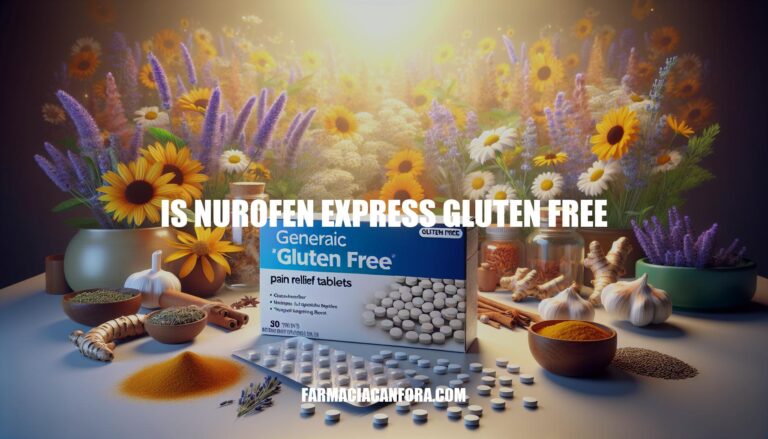


Determining if Nurofen Express is gluten-free is crucial for individuals with gluten intolerance or celiac disease. Even small amounts of gluten can trigger severe health issues in these individuals, including digestive problems and long-term complications. Ensuring medications like Nurofen Express are gluten-free helps maintain their health and avoid adverse reactions.
Ingredients of Nurofen Express:
Identifying Gluten in Ingredients:
To ensure a product is gluten-free, always check the packaging for any declaration of wheat starch or gluten. If there is no mention of gluten or wheat starch, the medication is considered suitable for those with celiac disease.
Always ensure to check the packaging every time you purchase, as formulations can change.
The manufacturer of Nurofen Express states that the product is gluten-free. This means it does not contain any gluten, making it suitable for individuals with celiac disease or gluten sensitivity.
Regulatory Guidelines for Labeling Medications as Gluten-Free:
Nurofen Express Compliance:
Nurofen Express, which contains ibuprofen, complies with these standards by ensuring it does not contain gluten or any gluten-derived ingredients above the 20 ppm threshold. This makes it suitable for individuals with celiac disease or gluten sensitivity.
Nurofen Express is considered gluten-free, as it does not contain any gluten-containing ingredients. The manufacturer has confirmed that the product meets the regulatory guidelines for labeling medications as gluten-free.
Consumers with celiac disease or gluten sensitivity can safely use Nurofen Express without worrying about adverse reactions.
To ensure the product remains suitable, always check the packaging and contact the manufacturer if in doubt. It is also essential to note that formulations can change over time, so it’s crucial to verify the ingredients every time you purchase.